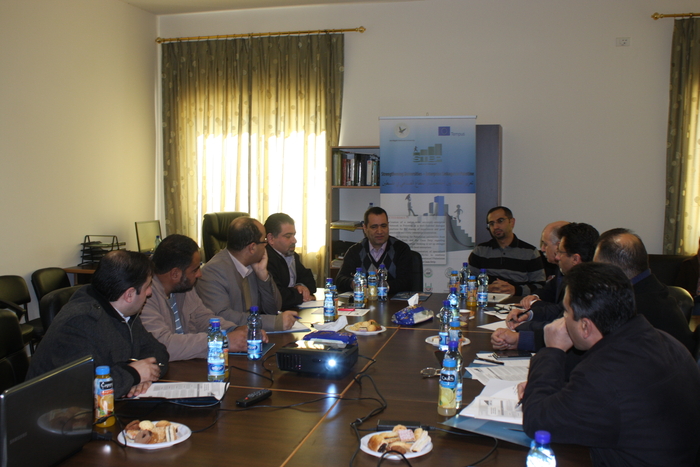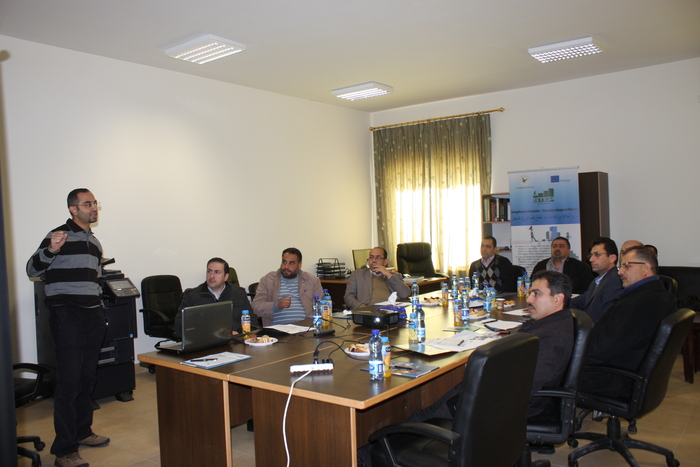Workshop on Strengthening Cooperation between Palestinian Universities and the Private Sector
On Wednesday January 8th, 2014, An-Najah Business Partnership and Innovation Centre (NaMIC), sponsored by the Tempus Project, organised a workshop about strengthening cooperation between Palestinian universities and the private sector, with the aim of coming up with practical recommendations to enhance the relationship between An-Najah and other local market institutions.

Dr. Imad Ibrik, the Tempus projects coordinator at An-Najah University, opened the workshop and talked about the Tempus project in general. Tempus is sponsored by the EU and supports and improves the quality of higher education in partner countries from Eastern Europe, Middle Asia, Western Balkans, and the Mediterranean area, through cooperation projects between the universities.
Dr. Imad Ibrik talked about the STEP project, which aims to achieve mutual benefits between the universities and the private sector, build partnership and cooperation between the participating, and finally highlight the expected results by due course of the project.
Dr. Imad Ibrik pointed out that the University, through its scientific centres, largely cooperates with the local community in all aspects and that STEP is an initiative in this field; he also mentioned that the Centre of Partnership and Initiation was established with the support of this project, and links the University and the private sector.
Later, Dr. Yahya Salah, the Director of the NaBIC, thanked the participants who represented the local judiciary, and then presented an overview on the philosophy and objectives of the Centre.

Next, the representatives of several prominent local institutions presented their points of views regarding this partnership, including the most important obstacles that hinder cooperation in the academic field, their ambitions, the problems that face them in coping with University students during the practical training or the execution of graduation projects, and finally, the communication challenges with the University. All of the attendees stressed the necessity of increasing the level of mutual trust between the two parties, for the sake of the cooperation with the University, which serves as the steering wheel of the development process of local institutions by achieving success stories that bolster trust between the two parties. Each party feels the importance of the other.



